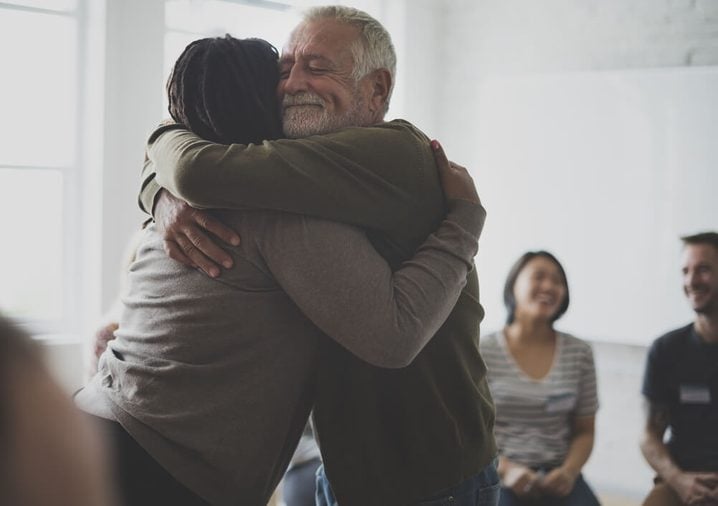Nicer People Are More Prone to This Mental Health Disorder
Updated: Sep. 15, 2020
We're all encouraged to be nice, but it turns out this positive quality can be a very real negative.

There are many simple ways to be nicer to people, and we like to believe that all that kindness and consideration will be appreciated. However, a new study indicates that being nice may not do us any favors down the line.
According to a study published in the journal Nature Human Behavior, people who are nice—defined as sensitive to unfairness or inequity—are more likely to show symptoms of depression than people who tend to be selfish and egotistical. Learn how to spot 13 words and phrases that might signal depression.
For the experiment, lead author Dr. Masahiko Haruno and a team of researchers looked at whether the pattern of thinking that’s considered “pro-social” (meaning self-sacrificing and willing to promote equity) was linked with longer-term clinical symptoms of depression. They started by giving nearly 350 people a personality test to determine whether they were more “pro-social” or “individualist” (selfish and primarily concerned with maximizing their own resources). Then they measured people’s desire to share financial resources with those less fortunate. By examining the brains of pro-socials and individualists using functional magnetic resonance imaging (MRI), they were able to see which areas of the brain are activated during specific situations.
Turns out, the brain images were quite different between the two types of people. In situations in which money was unequally distributed, pro-social people showed high activity in the amygdala (an evolutionary region of the brain associated with automatic feelings, including stress), while individualists had increased amygdala activation only when others received more money. There was also a different pattern of activity between the two groups in the hippocampus, another primitive brain region involved with automatic stress responses.
The researchers then followed up with a common depression questionnaire called the Beck Depression Inventory to see whether these patterns of brain activity were linked with depression symptoms within the prior two weeks. Turns out that having a prosocial pattern of brain activation was associated with more depression. The dynamic remained true when researchers followed up with participants a year later. These are the hidden signs of depression you should watch out for.
According to the researchers, nicer people are more vulnerable to depression because they are more likely to experience extreme empathy, guilt, and stress. And this emotional sensitivity is wired into the deepest and most automatic regions of the brain—places that are easy triggers for depression. Read why low-grade depression is on the rise.
Fortunately, not all hope is lost for inherently kind people. Dr. Mauricio Delgado, a neuroscientist at Rutgers University, tells Scientific American: “Although the average pro-social may have a sensitive amygdala—and hippocampus, the other primal stress-related brain region in the study, there are plenty of other higher-order brain regions involved in depression, including the prefrontal cortex, a brain region associated with regulation of these automatic feelings.” Make sure you know the truth behind 14 other dangerous misconceptions about depression.
By training higher-level brain processes (like the pre-frontal cortex) through talk therapy, pro-socials can learn to control and combat their more primal emotions. And the more they can use the pre-frontal cortex to tamp down amygdala-driven stress, the less likely they will be to fall into depression. Here are 16 other science-backed ways to overcome depression naturally.
[Source: Scientific American]